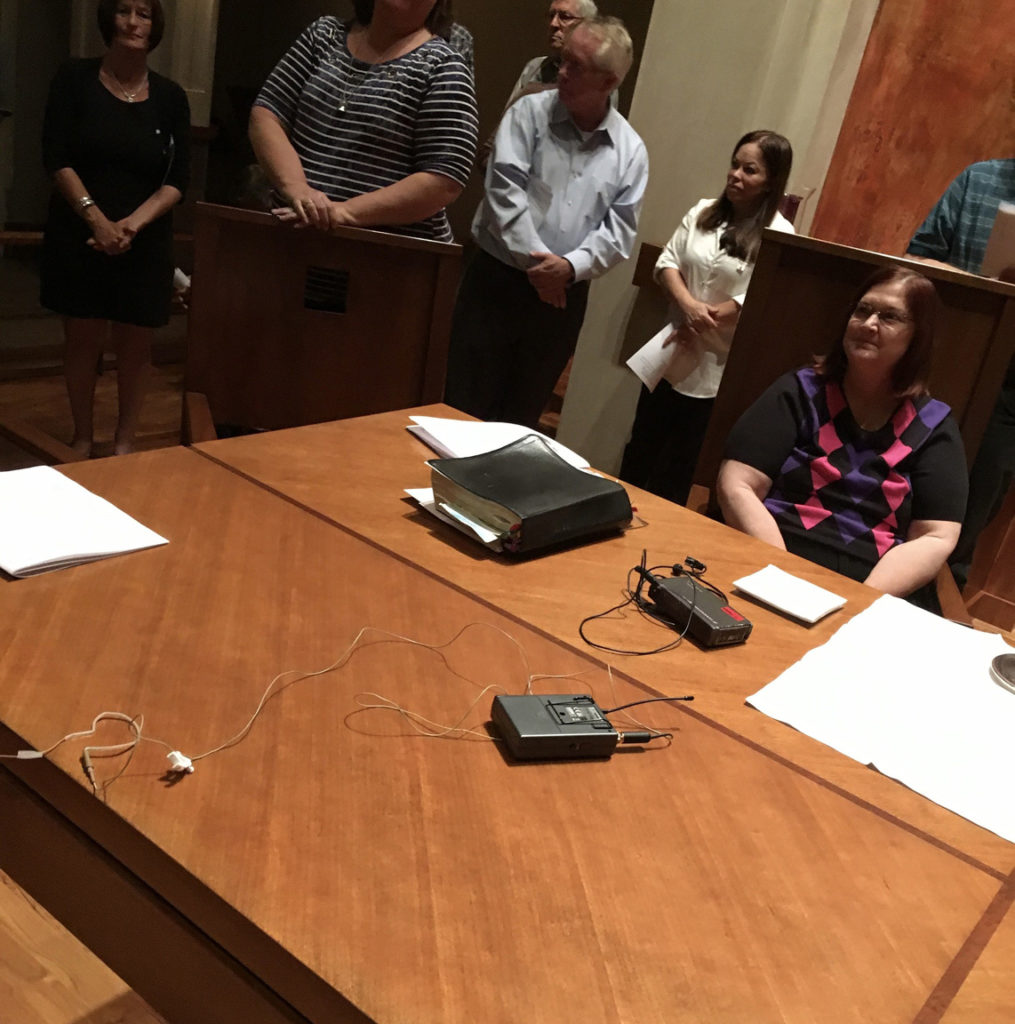
Good Friday 2016 at St. John Chrysostom Church in Rancho Santa Margarita.
Holy Saturday is a good day for faithful people in a secularizing time, quiet hours for discerning how to make our way in a Holy Saturday world. In the old Apostle’s Creed, we would says that Jesus had descended to the dead, though just for three days. Surveys of religious affiliation suggest that millions would agree with Nietzsche that Jesus checked in and never checked out.
At the church I served in Orange County, we devised a Good Friday liturgy that put stress on God’s three-day death. We tossed our books, papers, and vestments on the altar and floor, rearranged the sanctuary furniture and draped ourselves over it, and treated the reserved sacrament like a picnic. No more church, clergy, or rules. Just we folks, huddled together, trying to figure it out for ourselves. A colleague told me on our recent Episcopal Diocese of Los Angeles pilgrimage that her parish doesn’t serve communion from the reserved sacrament on Good Friday. “If Jesus is gone,” she said, “he’s gone.” That’s just what our liturgy was getting at.
I can’t say people enjoyed the service very much. Imagining the absence of God is not why we come to church. Yet increasing numbers of our United States and European neighbors believe that humanity is the sole author of its ethics and destiny. It’s now up to constitutions, not covenants, to respect the dignity of every human being. Abrahamic values, such as putting our neighbors’ needs ahead of our own as Jesus did, or caring for people who are marginalized as the prophets said, are construed as guidelines rather than rules, to be followed when convenient and affordable.
But democracies are imperfect and fragile, strained by fiercely competing interests, some authoritarian and punitive. Many religious people remain in the public square to force their will on others, just like in the old days, when religion’s power was rooted in shame and punishment. On Good Friday, a federal judge was persuaded to restrict the reproductive choices of every American by a political movement whose relentless project is criminalizing abortion. If people are becoming less religious, such actions taken in God’s name may help explain why.
And yet mass coercion wasn’t Jesus’s way. To early Christian communities that were working out their differences, essentially their politics, Paul, in the name of Christ, counseled compassion, kindness, humility, meekness, and patience (Col. 3:12). But these can’t be legislated, and in U.S. politics today, one sees little evidence of them.
Some have come right out and said that in public life, love is for fools. In a Holy Saturday world of clashing interests and prerogatives, we’re at risk of Christian kindness descending to the death of irrelevance. Yet for the faithful, old-time grace still abounds. Our unfashionable little church and those like it may indeed be dying. All by itself, the world may one day have to rediscover the saving power of self-sacrificial, forgiving, redeeming love, the only thing that really works. But there’s still a remnant waiting at the door of the tomb, our eyes hungry to behold love’s most heavenly light.
O God, Creator of heaven and earth: Grant that, as the crucified body of your dear Son was laid in the tomb and rested on this holy Sabbath, so we may await with him the coming of the third day, and rise with him to newness of life; who now lives and reigns with you and the Holy Spirit, one God, for ever and ever. Amen.
